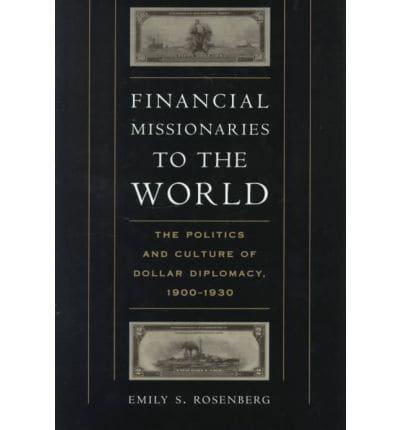Publisher's Synopsis
Recently, a volatile global economy has challenged the United States to rethink its financial policies toward economically troubled countries. The author suggests that perplexing questions about how to standardize practices within the global financial system, and thereby strengthen market economies in unstable areas of the world, go back to the early decades of this century. Then, dollar diplomacy - the practice of extending private US bank loans in exchange for financial supervision over other nations - provided America's major approach to stabilizing economies overseas and expanding its influence.;Policymakers, private bankers, and the members of the merging profession of international economic advising cooperated in devising arrangements by which US banks would extend foreign loans on the condition that the countries hire US experts to revamp financial systems and exercise some supervision. Rosenberg demonstrates that these arrangements were not simply technical and shows how they became central to foreign policy debates during the 1920s, when increasingly vocal critics at home and aborad assailed dollar diplomacy as a new imperialism. she explores how loan-for-supervision arrangements interrelated with broad cultural notions of racial destiny, professional expertise, and the virtues of manliness. an innovative, interdisciplinary study, this work illuminates the dilemmas of public/private cooperation in foreign economy policy and the incalculable consequences of exercising financial power in the global marketplace.







